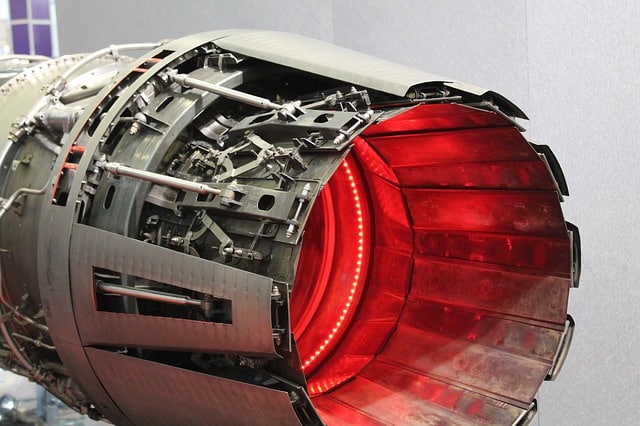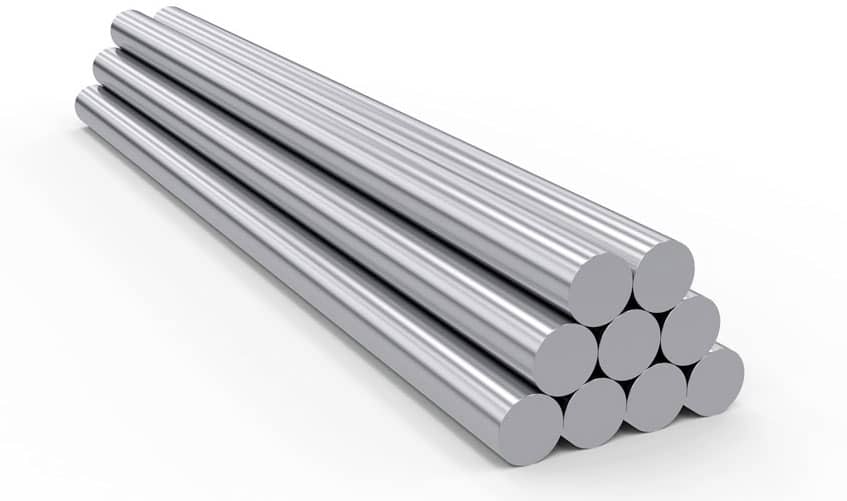Inconel 718: AMS 5662 available from stock
Why is Inconel 718 called the powerhouse of superalloys? Inconel 718 has impacted high-performance applications in a range of industries due to its unique combination of corrosion resistance, strength and ability to withstand extreme temperatures. There is consistent demand for the superalloy from our clients and it should therefore not be a surprise that Metel offers direct-from-stock availability of round bar Inconel 718. In this article, we explore its discovery, properties and composition, discuss machinability and, of course, its availability.
Inconel 718
Inconel 718 was developed by a team of researchers at the International Nickel Company (INCO) during the late 1950s and early 1960s. This breakthrough was driven by the aerospace industry’s need for a material that could withstand extreme stress and temperatures. The team delivered, discovering a superalloy that offered an unparalleled blend of strength, heat resistance, and corrosion durability for critical applications in aerospace and other demanding (high-tech)markets.
Inconel 718 properties and composition
Inconel 718 is a Nickel-Chromium superalloy known for its exceptional combination of exceptional creep resistance, high strength, corrosion resistance, and ability to withstand extreme temperatures. Its composition is a blend of elements, primarily consisting of Nickel and Chromium, with significant amounts of Iron, Niobium, Molybdenum and Titanium. This provides the material with a remarkable balance of mechanical properties and durability, making it ideal for challenging environments.
The exceptional creep resistance of Inconel 718 often drives the selection of this superalloy. Creep, the tendency of a material to slowly deform under the influence of constant stress at high temperature, poses a significant challenge in many industrial applications. Inconel 718’s resistance to creep is unparalleled up to temperatures of 700°C (1292°F)! Where other metals would deform or even deteriorate due to the stress and high-temperature exposure, Inconel 718 will perform. Its reliability and longevity make it the superalloy of choice for applications in:
- Aerospace
Engine and airframe parts due to its resistance to high temperature and strength - Gas turbines
Turbine blades, seals and combustors that need high-temperature strength and oxidation resistance - Extreme environments (corrosive or high temperature)
Ideal for chemical processing, heat treating, and pollution-control equipment - Nuclear reactor
Reactor core and control rod components often employ this alloy due to its corrosions and radiation damage resistance - Undersea applications,
Primarily in the oil and gas industry, subsea equipment should be able to withstand aggressive environments - Automotive
Especially in racing where durability of for example exhaust systems or turbochargers is critical - Medical devices
Inconel 718 is biocompatible and strong and is often used for surgical instruments and implants. - Manufacturing equipment
Hot extrusion processes and high-pressure equipment does well with Inconel 718 due to its hardness and resistance to deformation.
Also noteworthy, Inconel 718 is increasingly applied in the semiconductor market due to its strength, creep resistance and its ability to withstand extreme temperatures as this market moves towards even higher performance machines and processes.
Machinability and availability of Inconel 718: AMS 5662
When discussing Inconel 718 round bars there are three variants that engineers often refer to; ASTM B637, AMS 5662 andAMS 5663. Metel holds stock of AMS 5662 in round bar, making it available to our customers at short notice. The other two standards (and other forms like sheet, square bar and tubes) are available as well, which can be supplied directly from the Nickel factory. In some cases, we hold stock of certain specialty metals for individual clients, ensuring availability. But there is a key reason for our choice to keep Inconel 718 AMS 5662 in stock: machinability.
Let’s start with the difference between ASTM B637 and AMS 5662. While both list the same composition ranges, the AMS 5662 is generally speaking stricter on the homogeneity of the material and its microstructure is extensively tested. This makes it the preferred norm for many of our clients.
The difference between AMS 5662 and AMS 5663 is the fact that AMS 6663 is precipitation hardened, giving the material its highest mechanical properties. Both are solution annealed but the subsequent precipitation hardening applied to AMS 5663 makes it more difficult to machine. We often recommend that our clients work with AMS 5662 and, after the part is done, have it hardened to the mechanical properties of AMS 5663. It is, of course, cheaper to purchase AMS 5663, but the more complex machining often makes this a poor trade-off.
In some cases, Metel will even provide machined Inconel 718 parts to clients. This is an additional service we provide when clients face challenges in machining certain individual (or low volume) parts, and only as part of a larger order or relationship. These parts are machined in the same Nickel factory from which we source our Inconel 718 and the quality is therefore consistent.
Would you like to know more about Metel’s services or the delivery times of Inconel 718? Please contact us via 0416 – 724 800 or mail n.kesteloo@metel.nl.

